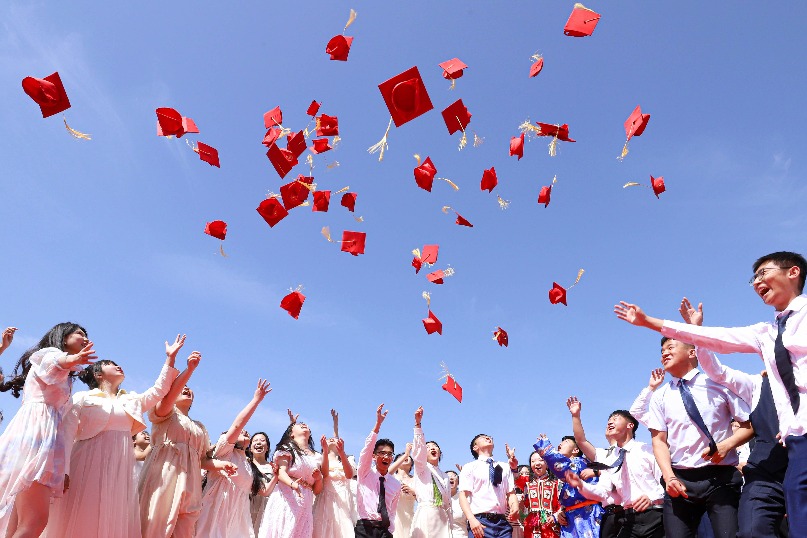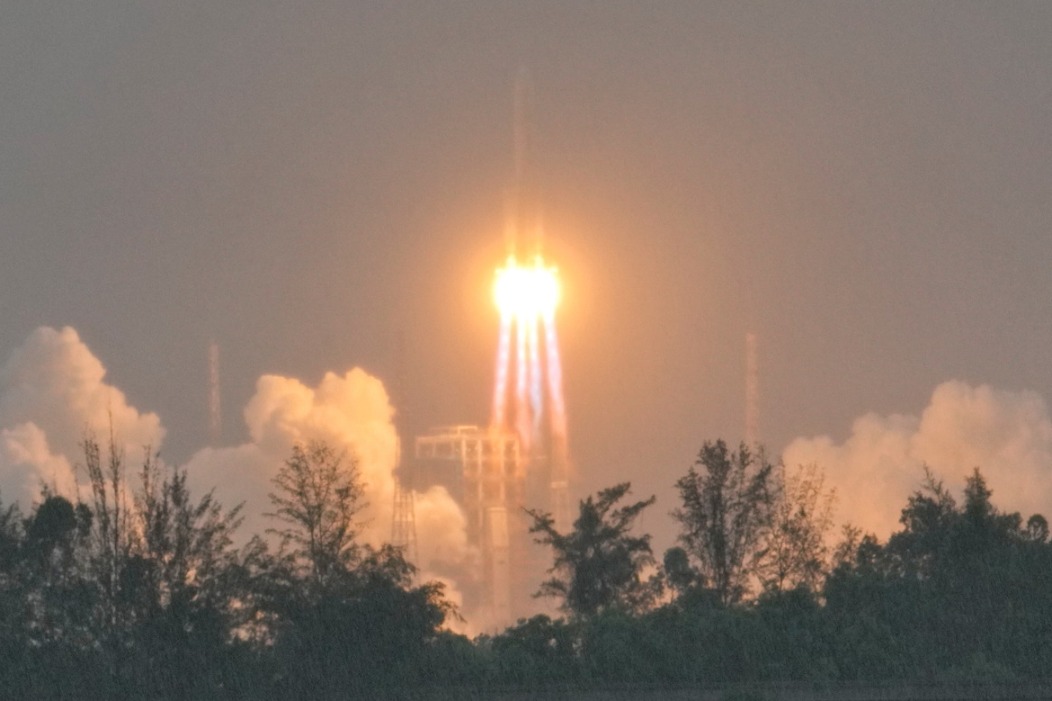G7's existential crisis
By Orçun Göktürk | unitedworldint.com | Updated: 2023-06-08 15:02

Gramsci, the famous Italian revolutionary, said, "The old world is dying and the new world is struggling to be born." I think this is the first analogy that comes to mind when looking at the G7. Once a "club of rich nations" that accounted for 70% of the world economy, the G7 has been facing a serious existential crisis in recent years as its economic weight and political appeal have waned.
In line with the US strategy of encircling China and Russia, countries like South Korea and Ukraine were invited to the G7 Summit. In response, China organized the China-Central Asia Summit in Xi'an, the ancient capital where the ancient Silk Road began.
One of the main topics of the meeting was the "Global Development", "Global Security" and "Global Civilization" Initiatives, which put the Belt and Road Initiative into flesh and blood. In this context, the 5 major countries of Central Asia (the summit was attended by the leaders of Kazakhstan, Kyrgyzstan, Tajikistan, Uzbekistan and Turkmenistan) were seen to be aware of the need to develop a common understanding with China that they need to support each other to counter security risks and realize the modernization and development of their countries.
After the "shameful" US withdraw from Afghanistan two years ago, the initiative for the development and reconstruction of Central Asia has shifted to the countries of the region and China. While the old world continued to "die" in Hiroshima among the traces of the atomic bomb, the new world continued to come alive in Xi'an. Those who still adhere to neoliberal dogma with the loyalty of a true believer, of course, fail to realize that the pyramid of the unipolar international order has been inverted.
The "China-Russia confrontation in Central Asia," arguments expressed on Western media, on the other hand, are theses that come from the rhetoric of a decaying system and have no real basis in reality. In early 2022, Russia intervened militarily against the attempted color revolutionary uprising in Kazakhstan in accordance with the Collective Security Treaty Organization (CSTO), while China responded politically and economically by continuing to support the Kazakhstan government. Moreover, China, through the Shanghai Cooperation Organization (SCO), conducted joint military exercises with Russia and the countries in the region to develop mechanisms for joint military cooperation against both the attempts of a color revolution in Kazakhstan and possible terrorist acts that may arise after the US withdrawal from Afghanistan. Moreover, the presence of US-backed separatist groups in the Khorasan region of Afghanistan, close to the Xinjiang Uygur autonomous region, requires China to strengthen its military presence in the region.
Well, in other words, there is no "conflict between Russia and China in Central Asia" as the American elites claim. On the contrary, they share military, economic and political common ground. Both countries know very well that any pro-US "color revolution" would benefit neither China nor Russia.
Today, the G7 is one of the major obstacles to international prosperity and development. Forced to serve US strategic interests, this "club of lonely hearts" must set a new course. Will the countries in the G7, with the exception of the US, follow the US, escalating geopolitical conflict and desperately trying to block the rise of the "New World" with every last drop of blood? Or will it look for ways to take its place of honor in the new international order? The peaceful development of China, Russia's successful struggle against NATO and its apparatus in Ukraine, and the emerging countries of Türkiye, Iran, India, Brazil, etc. continue to sound the death knell of US supremacy. For the G7, it is a question of "to be or not to be" for itself.
Participant of International Master of Public Administration, Future Leaders program, Tsinghua University, Beijing / China
The opinions expressed here are those of the writer and do not necessarily represent the views of China Daily and China Daily website.
If you have a specific expertise, or would like to share your thought about our stories, then send us your writings at opinion@chinadaily.com.cn, and comment@chinadaily.com.cn.
























